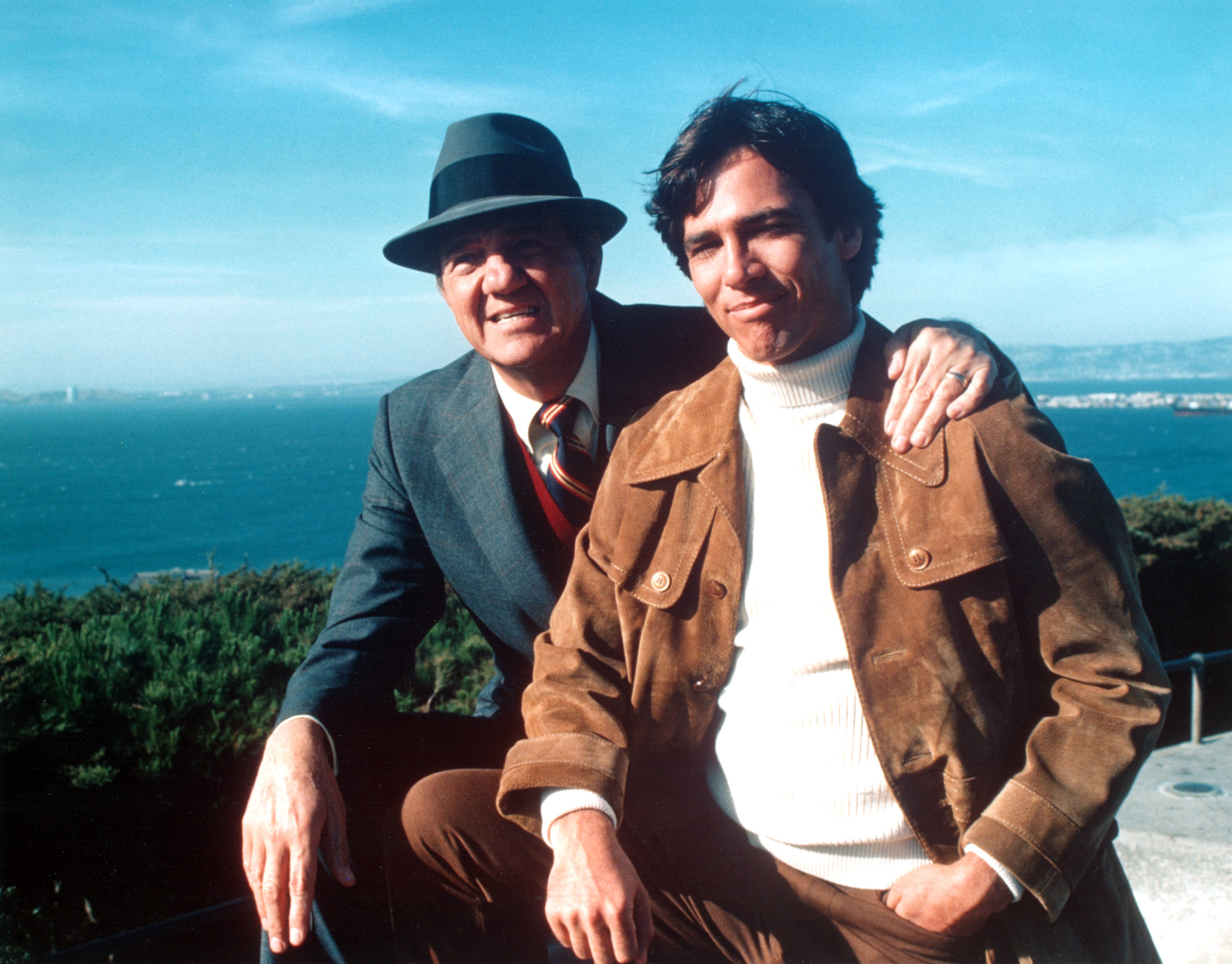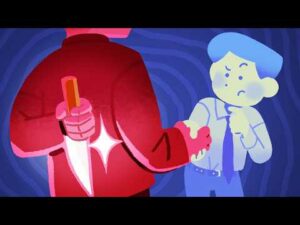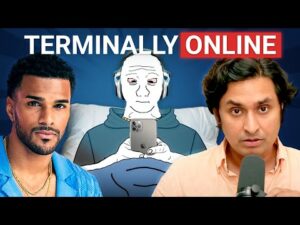The Untold Journey of Richard Hatch: From Battlestar Galactica Star to Life’s Ultimate Comeback Story
What if I told you that a TV show which aired for just a single whirlwind season nearly half a century ago could STILL spark passionate devotion and shape entire generations of fans? Sounds wild, right? Yet, that’s exactly the legacy of the original Battlestar Galactica—a sci-fi saga that proved you don’t need decades on air to leave an indelible mark. And at the heart of this cosmic tale was Richard Hatch, who took on the role of Apollo, the steadfast son of Commander Adama, and whose journey both on and off screen tells a story of grit, reinvention, and a refusal to let a dream fade away. How did a shy kid from Santa Monica turn into a sci-fi icon who not only helped keep Battlestar Galactica alive but also embraced its reinvention decades later? Buckle up—it’s a ride through perseverance, passion, and space opera lore you won’t want to miss. LEARN MORE
Despite being a short-lived series nearly 50 years ago, there is no question that the original Battlestar Galactica made an impact on a couple of generations of fans and certainly on the people who starred in it. That’s something that the late Richard Hatch, who played Apollo—son of Lorne Greene’s Adama—became very much aware of. Additionally, the show allowed him to showcase his personal perseverance in life.
For nearly three decades, when Battlestar Galactica seemed relegated to history (yet has lived on in the way that Star Trek and Doctor Who have), he refused to let it die and ensured that he remained connected with it. He wrote original novels set in that universe, produced a presentation trailer in the hope of garnering interest in a revival of the series and toured the world speaking to fans. When Ronald D. Moore’s darker reimagining finally took hold in 2004, Hatch not only accepted it—despite his initially serious misgivings—but gave one of the most complex performances of his career as Tom Zarek, the political firebrand who became Apollo’s ideological opposite.
Richard Lawrence Hatch was born on May 21, 1945, in Santa Monica, California, the middle child in a family of five brothers. His father was a private investigator, while his mother was a homemaker who encouraged the boys’ individual pursuits. Hatch admitted that as a child, he was shy, lacking the confidence that later audiences would associate with his on-screen persona. Acting, as he discovered, became a way of overcoming those insecurities.
Growing up in Santa Monica in the 1950s and early 1960s, Hatch was drawn to performance but had no early ambitions of Hollywood fame. It wasn’t until he attended Harbor College in Los Angeles that he found his calling in drama classes. A pivotal moment came when he attended a public speaking course there.
“I was terrified of getting up in front of people,” he recalled. “I was so shy I could hardly raise my hand in class. But that course changed my life. It gave me the courage to explore acting, and I realized that I could express myself in a way I never had before.”
Hatch soon began training more seriously, enrolling at the Los Angeles Repertory Theater. He immersed himself in stage work, honing his craft on the West Coast before moving to New York. In 1967, he joined a touring production of Butterflies Are Free, a play that proved formative in building his confidence as both an actor and a public performer.
By the early 1970s, Hatch was back in Los Angeles and beginning to find his way into television. His first big break came in 1970 with a role—Philip Brent—on the ABC daytime soap All My Children.
Early television career
After leaving All My Children in 1972, Hatch moved west to pursue prime-time work. He guest-starred on many of the most popular series of the era, including Hawaii Five-O, Cannon, Barnaby Jones, Marcus Welby, M.D. and Kojak. In 1976, he was cast as Inspector Dan Robbins on The Streets of San Francisco. The crime drama had become a staple of ABC’s lineup, headlined by Karl Malden and Michael Douglas as veteran cop Mike Stone and his younger partner Steve Keller. When Douglas left the show after four seasons to pursue a film career, Hatch stepped in as Malden’s new partner.
“Michael Douglas was a hard act to follow,” he said in interviews. “The audience loved him and I knew there would be comparisons. But Karl Malden was incredibly supportive. He helped me find my own way into the role.”
Although he remained with Streets for only its final season (1976–77), the experience elevated his profile considerably. By the end of the decade, he had become a familiar face to television audiences, regularly appearing in guest roles on shows such as Mary Hartman, Mary Hartman and Fantasy Island.

At the same time, Hatch pursued opportunities in made-for-television movies, which were thriving during the period. He co-starred in titles like Addie and the King of Hearts (1976) and Deadman’s Curve (1978), the latter a dramatization of surf-rock duo Jan and Dean’s story in which Hatch played Jan Berry opposite Bruce Davison’s Dean Torrence. Deadman’s Curve was particularly well received, with Hatch’s performance as Berry—capturing both the exuberance of early rock ’n’ roll and the tragedy of Berry’s near-fatal car accident. As such, it was one of his strongest pre-Galactica roles.
‘Battlestar Galactica’
By the late 1970s, television executives were searching for ways to capitalize on the massive success of 1977’s Star Wars. Universal Television producer Glen A. Larson, already known for hits like Quincy, M.E. and McCloud, developed Battlestar Galactica as a weekly space opera epic. The show would blend Biblical themes, swashbuckling action and family drama, centered on a ragtag fleet of survivors fleeing the robotic Cylons after the destruction of their home planets.
“Science fiction had been pretty dead up until Star Wars broke,” Larson said, “and obviously when something like that comes in and fuels the market, it makes a big difference. People did bring out their projects, including us. Clearly, we came in early with such an ambitious project and with the Industrial Light & Magic group involved. Galactica was a different generation of space project. It captured the new wave.”
The casting process was crucial, especially for the role of Captain Apollo — the son of Commander Adama (Lorne Greene), best friend to the roguish Starbuck (Dirk Benedict) and the show’s moral compass.

“I have to tell you, being as insecure as I was, whenever I had to play a role that was more heroic or a character that was confident and together, it was very hard for me, because I felt totally unconfident,” admitted Hatch. “I had no confidence as a person, so it was a major challenge for me to be able to dig inside myself and find a way to connect to a part of myself where I could find that sense of strength and confidence to play any role that had those qualities, and obviously Apollo had those qualities. But when I saw the scope of what they were trying to achieve, I realized this was something special. I thought, ‘Why not take the risk?’”
Ronald D. Moore, who masterminded the reimagination of the show decades later, commented, “The original Battlestar Galactica was the return of science fiction to primetime television. I’d never witnessed that. To me, science fiction was something that only existed on those sort of five-day-a-week strip syndication shows like Lost in Space and Star Trek. There was nothing in the primetime schedule that went there. So, when Galactica came around, it was, like, ‘Wow! This is a huge opportunity. It’s science fiction on a major network.’ I thought this would be a new era of sci-fi making it into the mainstream because of the success of Star Wars.”
Premiering as a three-hour event on September 17, 1978, Battlestar Galactica was one of the most expensive television productions of its era, with estimates ranging from $1 million to $1.5 million per episode. The pilot movie drew enormous ratings, ranking as the highest-rated debut of the season and winning an Emmy for its special effects.
Apollo’s role on the series was central and through him, audiences experienced much of the show’s drama: the grief of losing his brother Zac in the pilot episode as well as the woman he’s fallen in love with, Serina (Jane Seymour), his protective love for son, Boxey (Noah Hathaway) and his recurring struggles between duty and personal desire.
Working on Galactica was both exhilarating and exhausting. The scale of the production was unlike anything Hatch had experienced. “It was like making a movie every week,” he said. “The sets were massive, the costumes elaborate, and the pressure to deliver was intense. But there was also a sense of camaraderie. We all knew we were part of something bigger than just another TV show.”
Despite its strong premiere, Battlestar Galactica faced significant challenges. Critics—and George Lucas—accused it of being derivative of Star Wars and ABC executives balked at the ballooning production costs. After just one season and 24 episodes, the series was abruptly canceled in 1979. The news stunned fans and devastated the cast, who had believed they were building something that would go several seasons.
For Hatch, the cancellation was a bitter pill. “We had barely scratched the surface of what Galactica could have been,” he lamented years later. “The show had heart, scope and a vision. To see it cut down so quickly was heartbreaking. At the same time, with a first-year series, you are basically trying to stay afloat. You’re trying to get through each episode and get it done on time. The fact that we accomplished as much as we did was a miracle.”
Life after ‘Galactica’
When Battlestar Galactica was canceled in 1979, Hatch found himself in a difficult position. On one hand, he had achieved international recognition as Captain Apollo, a role that gave him an enduring fan base. On the other hand, the sudden end of the series left him almost instantly typecast, with casting directors seeing him primarily as a space hero rather than as a versatile actor. “There’s no manual for what happens when the role of your life ends abruptly,” Hatch later said. “You spend years trying to convince people you’re more than just that one character.”
Throughout the 1980s, he worked steadily, even if not always in high-profile roles. He guest-starred on a range of popular shows, including Hotel, Murder, She Wrote, The Love Boat, Fantasy Island, T.J. Hooker and Dynasty. At the same time, he began exploring life beyond acting. Recognizing the uncertain nature of Hollywood, he launched a career as a motivational speaker and acting teacher.
By the late 1980s and early 1990s, Hatch had also become a fixture on the science fiction convention circuit. While some actors distanced themselves from their most famous roles, Hatch leaned into his connection with Battlestar Galactica. “The fans never let Galactica die,” he often said. “They kept the dream alive long after the networks gave up on it.”

It was during this period that Hatch began positioning himself not just as a former star of Galactica, but as its most passionate advocate. In the mid-1990s, when the Internet was giving fandom a new collective voice, he recognized an opportunity. He started writing original Galactica novels that expanded the mythology of the series. The first, Armageddon (1997), co-written with Christopher Golden, launched a line of officially licensed books that imagined what happened to Apollo, Starbuck and the fleet after the television series ended.
The novels were well received by fans hungry for new Galactica adventures. As a result, he began organizing efforts to convince Universal Studios that it was time for a proper revival, speaking at conventions about his vision for a continuation and urging fans to show their support.
By the end of the decade, Hatch used his own money to produce a 30-minute demo reel titled Battlestar Galactica: The Second Coming (1999), designed as a proof of concept for a continuation series. The trailer featured updated special effects, a darker tone and the return of several original cast members, including John Colicos as Baltar and Terry Carter as Colonel Tigh. Hatch personally screened the trailer at conventions, often to standing ovations. While Universal ultimately passed on the project, The Second Coming gained legendary status within fandom, reinforcing Hatch’s status as the face of the Galactica revival movement.

“When I was going to do the Battlestar trailer,” Hatch noted, “I had people laugh in my face at how stupid that was, and I heard rumors about people in the industry laughing at me. But they don’t understand the value I got and the love and the feeling of accomplishment and the learning and the growth that came from believing in something so much that you are willing to go the distance. I have never in my life done something like that. It was a step-by-step process and before long I realized that I believe in this so much that I was willing to do anything to make it happen. To bring it back.”
The reimagined ‘Galactica’
When news broke in the early 2000s that Universal and the Sci-Fi Channel were moving forward with a reimagined Battlestar Galactica, Hatch was both skeptical and disheartened. After years of pouring his energy, creativity and even his personal finances into pushing for a continuation of the original series, he found himself on the outside looking in. Ronald D. Moore, formerly of Star Trek: Deep Space Nine, who would go on to create Outlander and For All Mankind, had been tapped to reinvent Galactica for a new generation—not as a continuation, but as a darker, grittier reboot that would recast the familiar roles and reshape the mythology.
Hatch initially voiced his disappointment publicly. He felt the original series still had untapped potential and that audiences deserved to see that story carried forward rather than erased. “I fought for 25 years to bring Galactica back,” he told fans. “I never imagined it would return in a form that essentially rewrote history.” At conventions, he was candid about his concerns, and some fans saw him as a vocal critic of Moore’s approach.
Yet Hatch’s relationship with the reimagined series soon took an unexpected turn. In 2004, as the reboot’s first full season went into production following its successful miniseries launch, Hatch was offered the recurring role of Tom Zarek, a former terrorist turned political agitator. The casting was inspired: Hatch, once the embodiment of nobility and integrity as Apollo, would now play a morally ambiguous revolutionary whose distrust of centralized power put him at odds with the fleet’s leadership.

Accepting the part was not easy for him. He worried about alienating fans who supported his campaign for a continuation and had joined him in criticizing the reboot. But ultimately, he saw the opportunity as both a professional challenge and a chance to reengage with the franchise that had defined his life. “It was ironic,” he admitted. “I had spent years trying to bring Galactica back, and here was this new version asking me to be part of it. I decided the best way to honor the show’s spirit was to bring my best to whatever role they gave me.”
As Tom Zarek, Hatch delivered some of the most layered performances of his career. Introduced in the first-season episode “Bastille Day,” Zarek was a former freedom fighter who had spent decades in prison and now sought to leverage the chaos following the Cylon attack to advance his political ideals. His rhetoric about democracy, power and corruption resonated with both the characters and the audience, forcing viewers to grapple with whether he was a principled dissenter or a dangerous opportunist.
Hatch relished the complexity of the part. “Apollo was the guy you could always trust to do the right thing,” he said. “Zarek, on the other hand, lived in the gray areas. He believed in his cause, but he wasn’t above manipulating people or seizing power when he had the chance. Playing someone with that kind of moral ambiguity was exhilarating. It’s rare in an actor’s life that he gets the opportunity to play two such diverse characters in the same story so many years apart that not only speak to the heart of what I am as a human being, but who I have become as a result of the trials, struggles and tribulations that follow all artists in their journey to find meaning and their place in the world.”
Other work and his personal life
While Battlestar Galactica remained the centerpiece of Richard Hatch’s career, his work outside the franchise was equally important to his sense of purpose. Throughout the 1980s, 1990s and into the new millennium, he became deeply committed to teaching, writing and motivational speaking—outlets that allowed him to shape lives beyond the screen.
Hatch developed a reputation as an acting teacher of unusual warmth and empathy. He ran workshops across the country, helping both aspiring and established performers refine their craft and overcome personal barriers. His own struggles with shyness gave him a particular sensitivity to the fears that held many young actors back. “I know what it’s like to feel like you don’t belong up there,” he often told students. “But once you find your truth, the audience will believe you.”
Parallel to his teaching, Hatch pursued a career in motivational speaking. He gave lectures and seminars under themes like “Overcoming Your Fears” and “Breaking Through Self-Doubt,” using his own life as an example of resilience.
He also continued to write. In addition to his Battlestar Galactica novels, Hatch authored So You Want to Be an Actor (2005), a guide that distilled decades of professional experience into practical advice. Unlike some celebrity-authored handbooks, Hatch’s was grounded in the nuts and bolts of the business, from auditions to rejection to craft.
On a personal level, Hatch lived a relatively private life. He never married, though he had a son, Paul, from a relationship in the 1970s. In interviews, he spoke of the challenges of balancing career ambition with personal relationships, candidly admitting that acting often consumed his energy.
What distinguished Hatch perhaps most was his bond with fans. Few actors embraced fandom as wholeheartedly as he did, and that openness gave him a reputation as one of the most approachable figures in science fiction fandom.
Illness and death

Even as he entered his 70s, Hatch showed little sign of slowing down. Privately, however, he was facing a serious health challenge. In early 2017, it was revealed that he had been diagnosed with stage IV pancreatic cancer, a disease known for its aggressiveness and limited treatment options.
Despite the diagnosis, Hatch’s instinct was to remain positive and connected to his community. He continued to engage with fans online, posting updates and words of encouragement even as he underwent treatment. But on February 7, 2017, Richard Hatch passed away at the age of 71 in Los Angeles, surrounded by family and friends.
Edward James Olmos, his co-star on the reimagined Battlestar Galactica, wrote, “Richard Hatch, you made our universe a better place. We love you for it. Rest in peace my friend.”
Dirk Benedict, his longtime colleague and friend from the original series, remembered Hatch as both a consummate professional and a loyal companion. Fans who had met him at conventions shared stories of his warmth and willingness to spend time with them, no matter how long the autograph lines stretched.
Hatch’s legacy is multifaceted. To mainstream audiences, he will always be Captain Apollo, the noble warrior who helped lead humanity’s flight from the Cylons. To fans of the reimagined Battlestar Galactica, he was Tom Zarek, a reminder that characters could evolve in surprising, morally complex ways. To his students, he was a teacher who believed in their potential even when they doubted themselves. And to science fiction fandom at large, he was one of their own—an actor who never treated fans as a burden, but as partners in keeping a shared dream alive.

As his friend and fellow actor Mary McDonnell, also from the reimagined series, noted, “Richard carried the torch for Galactica when no one else did. He never gave up on it, and in doing so, he gave it back to us all.”
Hatch himself noted, “My experiences on Battlestar, classic and reimagined, have provided me with the love, support and sense of family that I missed in my childhood and given me a home where I could finally grow into the actor I always knew I could be. The original cast of BSG was truly a family, led by the gracious Lorne Greene, and this current family of Colonial actors has only taken the true meaning of family to an even more elevated and rarefied place. I love both BSG series and feel very blessed to have been part of two great shows. Art is about life and exploring our wildest imaginings. It’s about touching the infinite and exploring what’s possible if we only believe. Battlestar embodies all of this in the most personal and intimate way, and she will always be in my heart.”















Post Comment